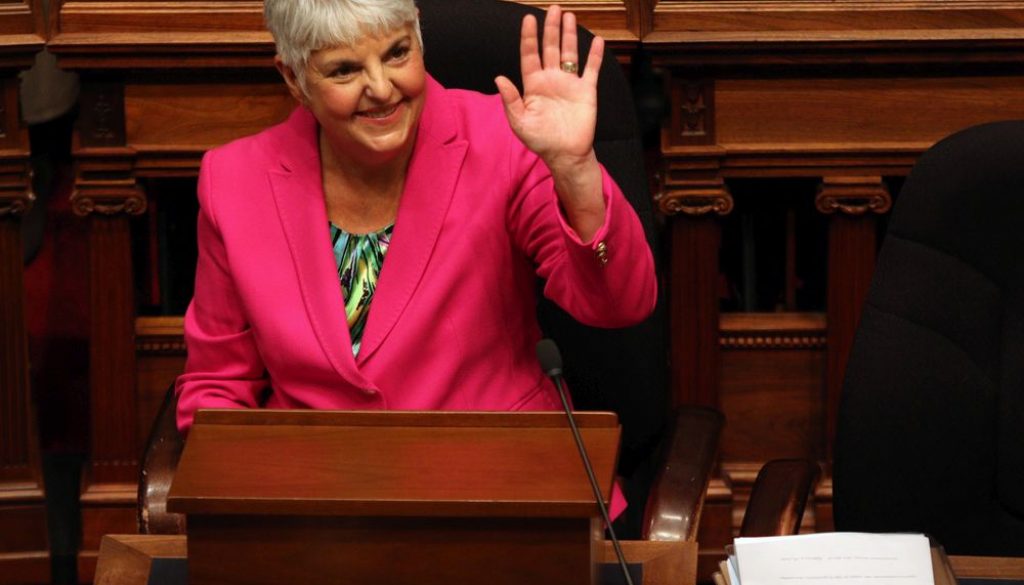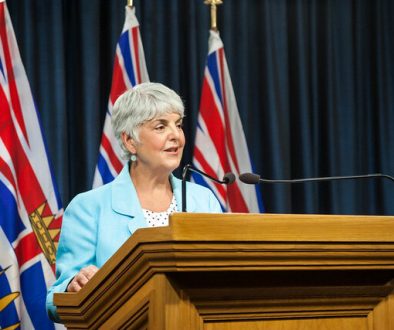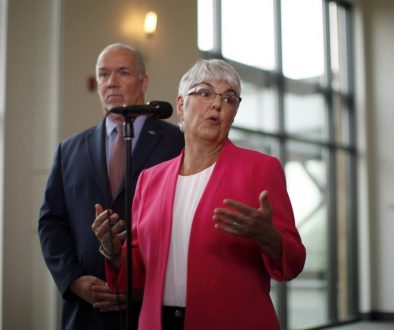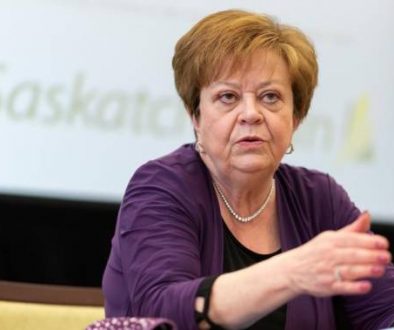B.C. budget: Finance Minister Carole James charts course for 2020 | Vancouver Sun
VICTORIA — B.C.’s New Democrat government took criticism from all sides Tuesday for a stay-the-course budget that kept the province in surplus but fell short of the expectations of social advocates, environmentalists and the business community.
Finance Minister Carole James announced modest new money for electric vehicle rebates and post-secondary grants, funded by new taxes on high-income earners and sugary drinks.
She balanced the budget with a projected $227-million surplus on $60-billion in spending, but it came at the cost of little to no increases for welfare or disability rates, shelter allowances, sexual violence supports, youth homelessness, and other social services for vulnerable citizens that community organizations said should have been a priority for the NDP.
“This budget is overly cautious,” said Iglika Ivanova, senior economist at the Canadian Centre for Policy Alternatives. James appears too focused on delivering a surplus while key social programs whither, Ivanova added.
The business community was similarly unimpressed.
“We’re disappointed in the budget,” said Business Council of B.C. president Greg D’Avignon. “We commend the government for balancing the budget, and addressing issues like child care, and particularly the cost for post-secondary education for those with low and middle incomes.
“But the budget is virtually silent on an agenda, let alone the implementation of a sustainable economic plan.”
The budget proposed a new tax bracket of 20.5 per cent for people with taxable income of more than $220,000 — a 4.3-per-cent increase. That will generate $216 million in new revenue next year, according to the budget. The change is retroactive to Jan. 1.
“We’re asking those at the top, who benefit the most from our economy, to contribute a little bit more,” said James.
“Nearly half the revenue of this tax increase will come in from individuals with income above $1 million, and even with this tax rate B.C.’s personal income taxes remain very competitive.”
While the new income tax affects a relatively small number of people, a second new tax on sugary drinks will impact far more consumers.
The government will end a Provincial Sales Tax exemption on sugary drinks, such as pop, starting July 1. Adding the seven-per-cent PST to such beverages will generate more than $30 million annually.
“I think it’s interesting if you take a look at the largest consumption of pop, sweetened drinks, it is 14 to 18 year olds,” said James. “We want to make sure we’re doing our part to set them on the stage of having a healthy life ahead.”
A third new tax measure would see government charge PST to foreign sellers of telecommunication and digital media services.
Some companies, such as Amazon and Apple, already charge PST on bills for streaming services because they have physical offices in B.C., but the new registration measure would capture companies like Netflix, which do not. It’s expected to generate $27 million in new revenue over two years.
Minister of Finance Carole James and Premier John Horgan share a word before she delivers the budget speech from the legislative assembly at B.C. Legislature in Victoria, B.C., on Tuesday, February 18, 2020.
CHAD HIPOLITO /
THE CANADIAN PRESS
The revenue from the new taxes will help fund a new $24-million grant program to offer up to $4,000 a year for low-income college and university students in September.
That grant program will be overhauled to include students taking diploma and certificate courses in trades, education and health-care programs, which were previously ineligible. But the B.C. Nurses Union and the B.C. Care Providers Association both criticized government for failing to include nurses and care aides in the grant program, to help address chronic health care staffing shortages.
The new taxes will also help pay for another extension to existing electric vehicle rebates of up to $3,000, at a cost of $28 million next year.
The Opposition Liberals say the NDP’s tax-and-spend policies have created 23 new taxes since 2017, but done little to help affordability.
“We continue to see that increasing taxes seems to be the most convenient and effective way for this government to raise money,” said Liberal finance critic Shirley Bond.
Budget documents show provincial spending will rise next year faster than revenue, at 3.1 per cent compared to 2.6 per cent, respectively.
The hold-steady financial plan is a far cry from the large-scale spending agendas delivered by the NDP since it took power in 2017.
But James warned Tuesday of a softening economy, international economic risks and the need for prudence. The province’s economic growth remains estimated at 1.8 per cent.
“If you took a look at past governments, what would often happen at this time during a moderating economy is you’d see programs and services cut,” said James. “We’re not doing that.”
While some revenue sources are up in the budget, such as the carbon tax and property transfer tax, other revenues are lagging, including personal income tax, corporate income tax and cannabis revenue.
While child care funding received a small $88-million increase, it is then projected to be virtually frozen the following two years. The NDP’s plans to achieve $10-a-day child care require a $200-million funding boost by 2022, which is not currently in the budget.
Sharon Gregson, from the Coalition of Child Care Advocates, said she is concerned about the shortfall, but hopeful the government’s next budget will find the $200 million to keep the child care plan on track.
On housing, James said that although home sales dropped 1.5 per cent last year, and average home prices fell 1.6 per cent, prices need to drop further.
“I don’t think there’s anyone who would say we’ve reached affordable housing in British Columbia,” she said.
James said roughly $300 million in internal government discretionary cuts will continue. More than half of the government’s ministries — 13 of 20 — will see their budgets frozen or reduced next year.
The largest funding increase in the budget was 9.5 per cent to health authorities and hospitals. Total health care spending now accounts for 40 per cent of the entire budget.
Education for K-12 schools received only a 2.2-per-cent lift on almost $6.7 billion in spending. James reiterated a new teacher contract must fall into line with her limits of two-per-cent wage increases per year.
B.C. Teachers’ Federation president Teri Mooring has said any vote on strike action won’t occur while mediated talks are ongoing through March.
Many provincial programs received just enough funding to cover caseload pressures, such as income assistance, disability, other social supports. The budget calls for a raise to monthly earning exemptions for people on disability by $100, at a cost of $20 million over three years.
Environmentalists praised electric vehicle rebates, but pointed out government’s CleanBC plan remains incomplete, and not enough is being been done on climate change or for protection of old-growth forests.
This content was originally published here.




